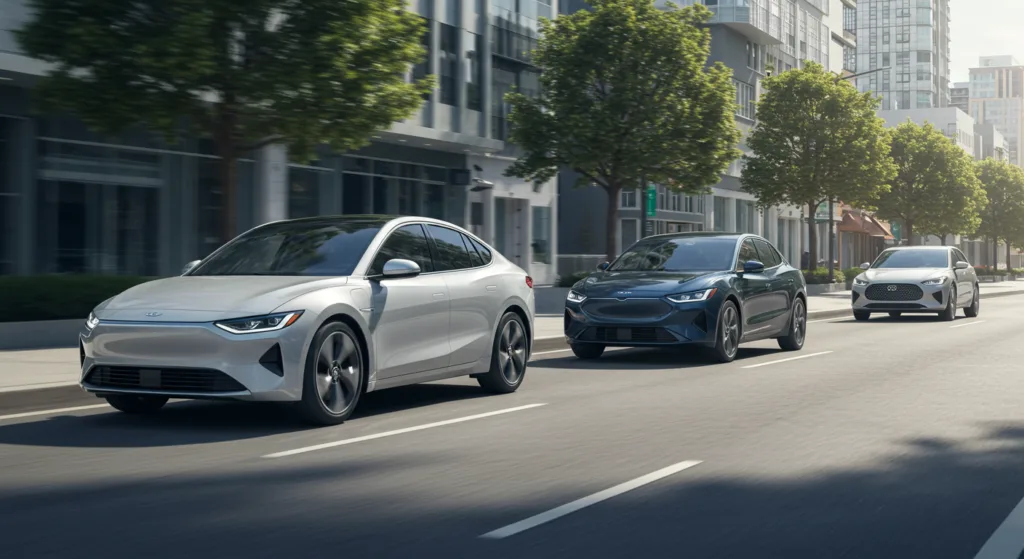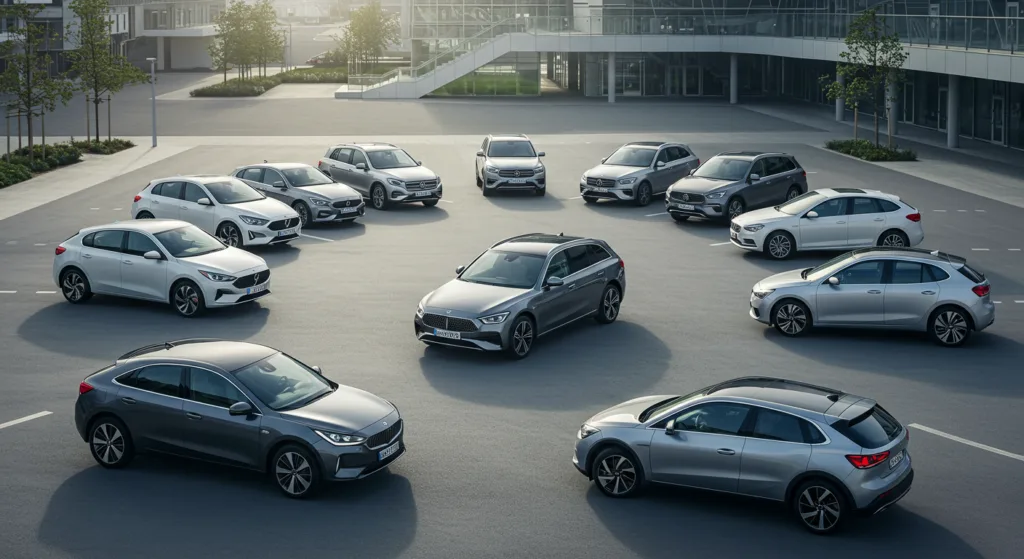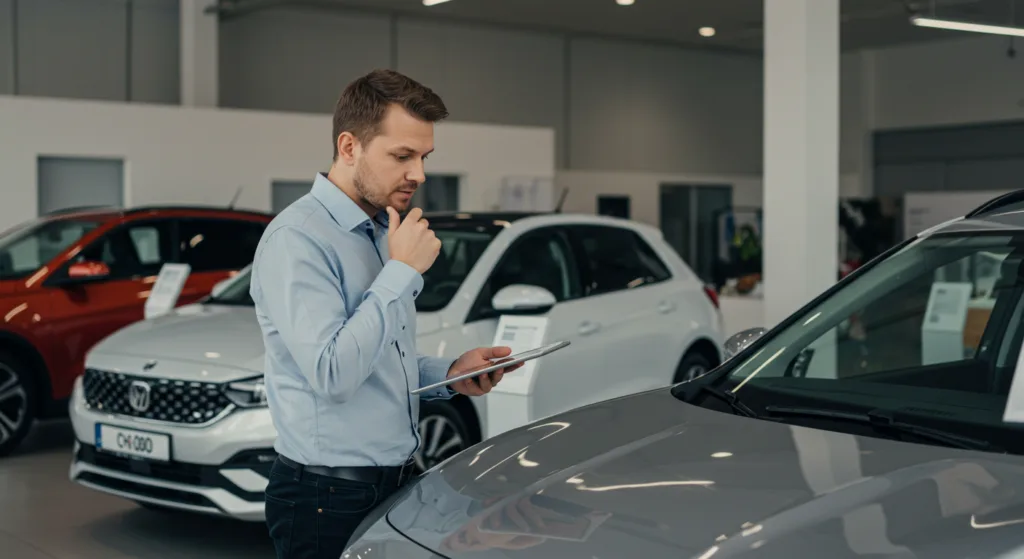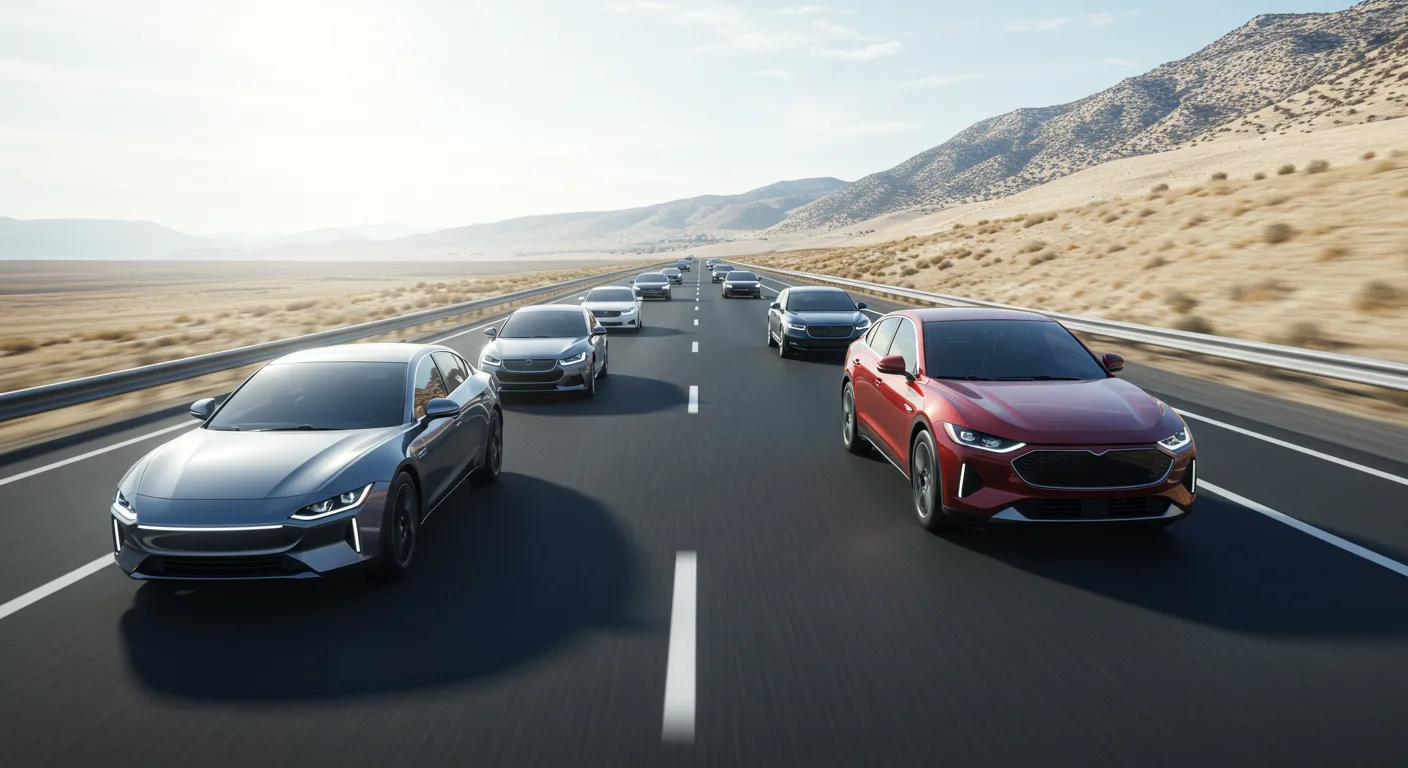1. What Are the Most Reliable Electric Cars in 2025?

As the electric vehicle trend continues on, there’s one thing on consumers’ minds: what are 2025’s most reliable EVs? Reliability is not just important for future ownership expenses, but also for peace of mind on the road. While technology keeps on evolving, some brands and models have proven themselves withstanding through time as far as reliability is concerned.
2025 Tesla Model 3 remains among the most reliable electric vehicles on the road. By previous Consumer Reports data and owner feedback, the Model 3 enjoys a better-than-average dependability rating, especially with regards to engine longevity and battery longevity. Over-the-air (OTA) software updates at Tesla also solve small problems short of a visitation at service centers.
Another dependability best bet is the Hyundai Ioniq 6. Hyundai has been increasing confidence with its electric production, and its 800V technology, lengthy range (up to 361 miles WLTP) and low repair frequency all contribute towards making Ioniq 6 a solid option. JD Power’s early quality surveys have discovered Hyundai’s EV range with fewer faults per 100 cars compared with a number of well-established manufacturers.
Toyota bZ4X, while a last-to-market player in the EV segment, can leverage Toyota’s legendary reliability heritage. It’s not the most stylish or quickest EV, but it will gain the hearts of drivers who care most about build quality, long life, and lower maintenance. Initial reviews in 2024 indicated fewer recalls and greater customer satisfaction compared to competitors in its class.
In Europe, the BMW i4 is gaining a reputation for a good car. It offers German engineering and the brand’s focus on longevity and performance. Warranty claims for battery components and drivetrains have been minimal, based on German TÜV inspection reports.
Last but not least, however, are the most trustworthy 2025 EVs, which have achieved a balance among software stability, battery longevity, effective thermal management systems, and quality builds consistently—and these models are at the forefront.
2. Which Electric Car Brands Have the Best Reliability Ratings?

Brand reputation can actually trump specific models, especially for long-term ownership. By 2025, there are definitely a few automakers that shine when discussion turns to dependability, at least for the EV segment.
Tesla is also a pioneer with development on EV-specific technology and battery longevity. Despite random instances of quality control failures, Tesla’s electric drive, simplicity (less that can break), and computer system are all contributors to fewer mechanical breakdowns. The approximate 200,000-mile battery retention rate for cars from Tesla is around 90%, well beyond industry norms.
Hyundai Motor Group’s Hyundai and Kia have stunned commentators with their electric cars. Hyundai Ioniq 5/6 and Kia EV6, among cars, have employed the E-GMP platform, leading to satisfactory reliability on US as well as European markets. Hyundai and Kia have the benefit of low warranty claims and high customer satisfaction levels. Hyundai placed at number 3 for initial quality for electric vehicles on the US market, according to JD Power’s 2024 survey.
Toyota has not yet built a massive electric vehicle portfolio, but its entry into battery-electrics has a foundation based on four decades’ worth of experience with hybrid technology. Toyota’s hybrids, for example, its Prius, have put over a billion miles on Earth with hardly a wear and tear, and that dependability gene is carrying over into its future EVs.
BMW and Mercedes-Benz are at the forefront with their electric luxury vehicles. Electric luxury vehicles like BMW’s iX and Mercedes’s EQS have proven reliable, even with all their complexity, especially for Europeans. German vehicle testers like ADAC and TÜV have had fewer issues with their high-voltage system components and electronics than one might have anticipated.
Safety-oriented Volvo also gets moving with the EX30 and XC40 Recharge. Volvo electric cars are doing well on owner-surveyed dependability, particularly within Scandinavian countries where cold-weather battery capability is essential.
They are also constantly upgrading their production lines for EV as well as battery technology, giving customers a stable choice with a rapidly growing and competitive category.
3. How to Choose a Long-Lasting and Reliable Electric Vehicle (EV)

Selecting a trustworthy EV involves something beyond perusing reviews—there are some specifications and figures that can enable you to make a wiser, long-term investment.
1. Battery Warranty and Chemistry
The heart of each EV is a battery. Look for cars with at least a 8-year/100,000-mile guarantee, now common among most solid manufacturers. And don’t forget battery chemistries, either—LFP (lithium iron phosphate) batteries, for example, last a bit longer and can withstand typical full charge cycles, but may not have as much energy density.
2. Thermal Management Systems
EV’s with liquid-cooled battery packs and active cooling drive similarly regardless of weather conditions and live a lot longer. Battery degradation is a massive contributor due to heat, and a quality solution (such as what has been put into practice on Tesla, Hyundai, and BMW) extends battery longevity and retains charging time across a lifetime.
3. Track Real-World Degradation Rates
Battery health is not a secret anymore. Real-world degradation data appear on websites such as EV-Database, and reports from fleet and taxi services. For example, studies suggested that the Tesla Model S loses around 5% capacity during the first 50,000 miles, and then it flattens out—demonstrating very good battery management.
4. Software Updates & Support
Another underrated thing for long-term dependability is software. Companies that provide continuous OTA (Over-the-Air) updates can fix issues, increase range, and add features with physical service calls. Tesla, Polestar, and even Ford (with the Mach-E) are leading here.
5. Build Quality & Service Network
Reliability also involves after-sales service and manufacturing consistency. Take a look at third-party data such as the Euro NCAP, Consumer Reports, or TÜV for a sense of service issues, panel fit, interior longevity, etc. Lexus (newcomer into the EV sector), Toyota, and BMW are a few manufacturers with a solid understanding of build quality.
6. Battery Pack Design (Modular vs. Integrated)
EVs with modular battery packs are also simpler to repair if one cell goes bad. Some newer vehicles have designs where bad modules can be swapped out, not necessarily the entire pack, for thousands of dollars saved. Research your dealer’s data, or look at your owner’s manual, to determine if there’s a modular architecture.
7. Efficiency Over Range
Do not let you get influenced by high-numeral ranges only. An efficient high-range EV (4+ mi/kWh) will mean that your battery is healthy, and you’ll save on charges down the road. Hyundai Ioniq 6 and Tesla Model 3, for example, are among the most efficient 2025 cars, with increased ranges for every battery capacity.
By focusing on the right metrics—battery health, efficiency, cooling, software, and service—you can choose an EV that stays reliable for years, not just months after the showroom glow fades.
With electric cars defining transportation’s future, choosing a well-placed 2025 EV is a choice more important than ever. By betting on reliable manufacturers like Tesla, Hyundai, Toyota, and BMW, and with careful consideration regarding battery quality, efficiency, and longevity, your investment will be a secure, future-proofed one. If you’re looking for a top-tier drive for daily commutes or road trips, dependability should be number one on your list. With careful criteria and due diligence, your new electric car can offer not only eco-friendliness—but peace of mind for years down the road.



